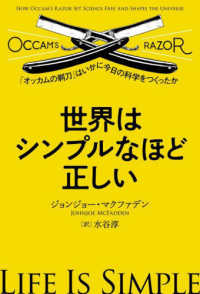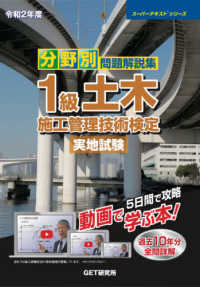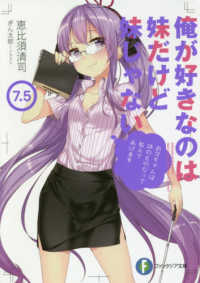- ホーム
- > 洋書
- > ドイツ書
- > Humanities, Arts & Music
- > Linguistics
- > other languages
Full Description
The questions of subjectivity and the literary style of realism, as manifested in Hu Feng's theoretical writings and Lu Ling's fictional writings, occupy a unique position in modern China. By looking more closely into the theoretical and fictional texts and the social-historical subtext, and through a re-examination of the issue of subjectivity and individualism, this book argues that individualism should not be treated as an ahistorical value-system, but understood within changing historical contexts; subjectivity should not be treated as an issue of personal choice, but as class-based and derived from collective community. To differentiate different subjectivities and the diversified foci of individualism in differing historical periods, Xiaoping Wang finds we need to explore the intellectuals' cultural-political strategy by situating them in the particular historical conjuncture and in the particular cultural fields. With this hermeneutical practice, the politics of recognition and the politics of style are mutually illuminated.
Contents
Introduction.- Chapter OneZeitgeist.- Chapter Two: Intellectuals' Politics and a Bourgeois Subjectivity.- Chapter Three: Subjectivity in Loss: Disintegration of Traditional Family and Emergence of Desire.- Chapter Four: Subjectivity in Search of: "Bildungsroman" of Modern Chinese Intellectuals.- Chapter Five: Subjectivity in Vain:A Fable of the Failure of Bourgeois Social Reforms.- Chapter Six: Intellectuals in Predicament: Other Stories.- Chapter Seven: Politics of Recognition and Politics of Style.- Chapter Eight: Self-Other Relationship and the Other as the People.- Chapter Nine: Lu Ling's Theory and His Fiction.- Conclusion.








